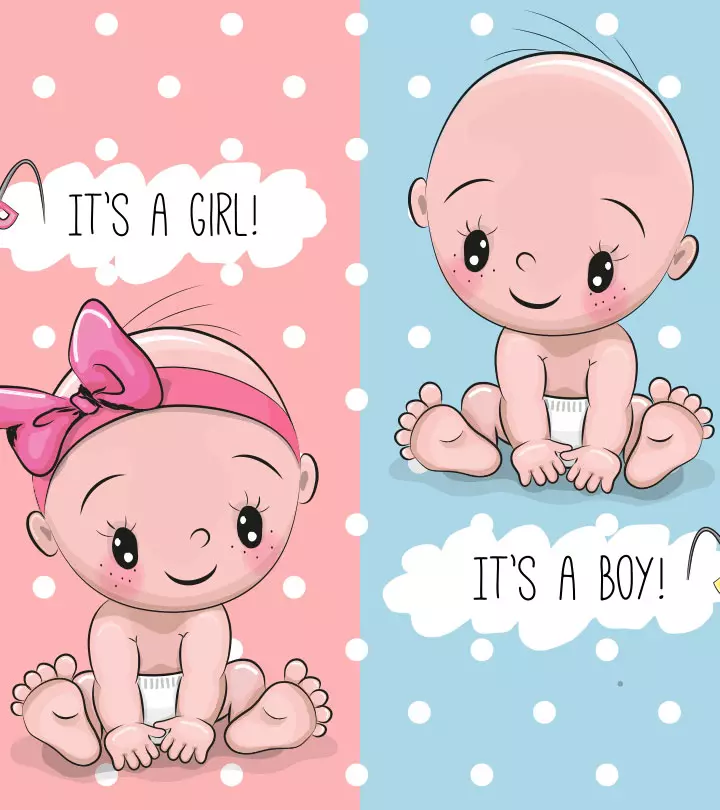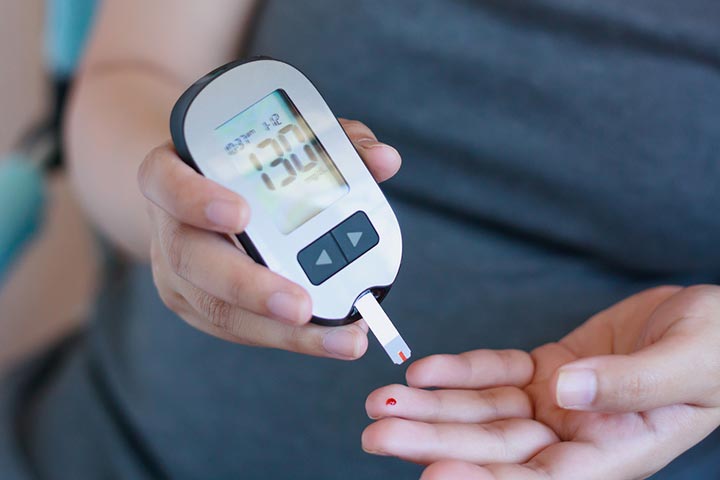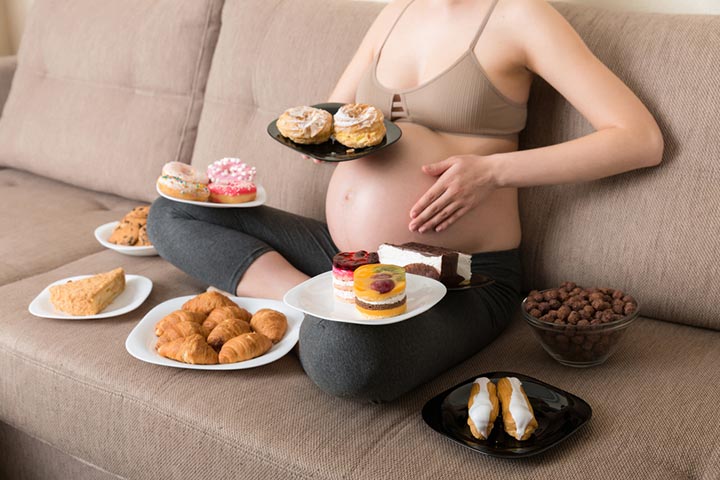
Image: Shutterstock
Everyone wants to know if you’re having a boy or girl the moment you announce your pregnancy. And, we can’t deny the fun involved in guessing the gender of the baby. Plus, with no shortage of people pouring in their opinions about predicting the baby’s gender, it’s bound to make you wonder if there’s some truth in folklores and old wives’ tales that claim to make guesses correctly.
Numerous studies have found that it’s possible to find which gender you are carrying. Even those predictions that have been scientifically backed often tilt only slightly in favor of one gender over the other — the game of odds is far less accurate than we would like them to be. Intrigued? Read on to know how certain scientific signs during pregnancy give away cues about the gender of your baby:
Can You Tell If Your Baby Is A Boy Or A Girl?
Finding out the baby’s gender is truly exciting. But even though some parents like to keep it a secret till childbirth, it’s still fun to know if it’s a boy or a girl before the due date. If you’re excited, here are some scientific facts that have aimed to verify tales and superstitions about the gender of the baby in the womb:
1. You’re Suffering From Severe Nausea And Vomiting
Image: Shutterstock
It is common for moms-to-be to experience morning sickness. Its intensity may vary, but this is one of the most common signs of pregnancy. Some moms seem to have it worse — they suffer from severe nausea and vomiting, scientifically termed as Hyperemesis Gravidarum (GV) (1). Studies show that women who carry a baby girl are more likely to exhibit this sign during pregnancy (2). The culprit here is the pregnancy hormone hCG produced more by female fetuses than males.
2. You Have A Forgetful Memory
Image: Shutterstock
You must have heard that pregnancy could mean that you’re pretty tired at any given time of the day but did you know that if you’re expecting a baby girl, you could also have trouble remembering things? Yes, it’s true! Scientific research has shown that women who give birth to daughters usually under-perform in memory tests, especially in computational and visualization skills compared to moms expecting sons (3). So, if you’re pregnant and struggle to remember where you leave your home keys, this could be the reason why.
3. You’re Stressed Out
Image: Shutterstock
This fact could surprise you, but your cortisol levels can help determine your baby’s gender! Researchers suggest that the higher your stress levels during pregnancy, the greater the chances of expecting a baby girl. And the reason has been attributed to girls being less vulnerable to inhospitable environments like wars, natural disasters, and occupational hazards than boys. A 2019 study has confirmed that pregnant women who experience physical and psychological stress are more prone to birth to a baby girl (4).
4. You Have Gestational Diabetes
Image: Shutterstock
According to another study, pregnant women with gestational diabetes — a condition with an increased level of glucose in the blood — are more likely to have sons than daughters. While researchers aren’t sure about the exact cause, several studies have backed this theory that a boy fetus will lead to more pregnancy-associated metabolic variations than a girl fetus (5).
5. You’re Always Hungry
Image: Shutterstock
It’s a known fact that your appetite changes during pregnancy. Thanks to morning sickness, some moms have trouble eating most things they liked before conception, or they have weird cravings that are seemingly insatiable. Plus, they also say that with boys, you will crave more salty foods like chips, fries, and pickles, while with girls, it’s more inclined towards sweets and chocolates. Science states that if you seem to be hogging on food or your appetite has shot up crazily; you could be carrying a boy (6). This seems to support the fact that sons need more resources, that is, a higher amount of calories than daughters, which also explains why boys tend to be heavier than girls at birth (7).
When Can You Learn The Gender Of Your Baby?
Image: Shutterstock
You don’t need to wait long to know the gender of your baby. The baby’s gender becomes apparent as early as 14 weeks into pregnancy, and by the 20-week ultrasound, your doctor can reliably predict whether it’s a boy or a girl (8).
There are other ways to know the gender of your baby, like the free-cell DNA blood tests and Chorionic Villi Sampling (CVS) (9), (10). Also, if you’re conceiving through IVF, you can know your baby’s gender even before you’re pregnant.
Thus, no matter how accurate any baby gender prediction method claims to be, you still need medical intervention of some kind to determine for sure if your baby is a boy or a girl. Since exceptions are everywhere, it proves that you must wait and figure if life holds last-minute surprises for you. What other baby gender prediction signs do you know? Do share your opinions with us in the comments section below!


















